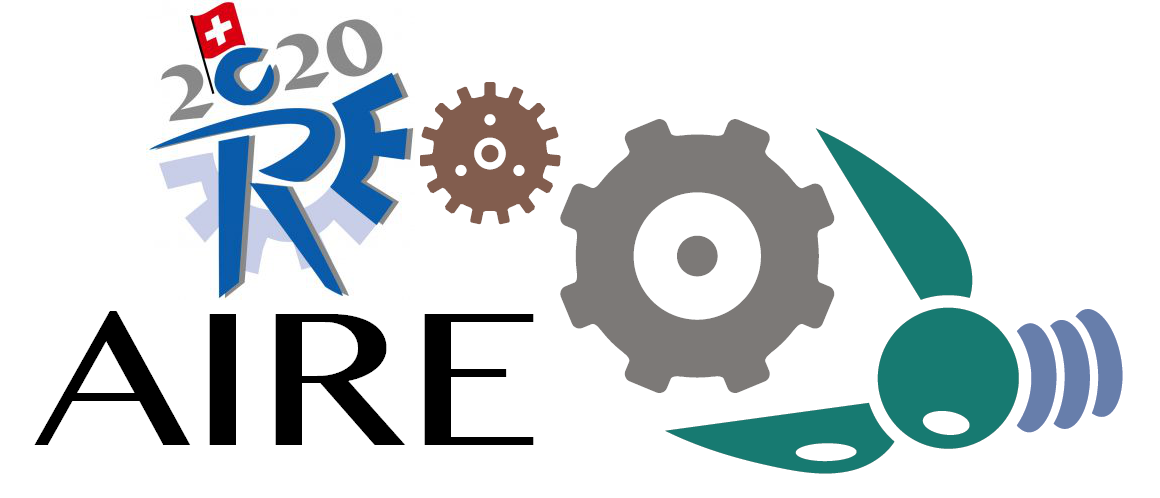
Program
The workshop will take place on
Session 1: Requirements Representation and Knowledge
Chair: F. Başak Aydemir
10:30 - 10:40
Welcome from the Organizers
F. Başak Aydemir, Nelly Bencomo, Alessio Ferrari, and Mona Rahimi
10:40 - 11:05
Towards a Semantic Representation for Functional Software Requirements
Riad Sonbol, Ghaida Rebdawi and Nada Ghneim
Discussant: Tong Li
11:05 - 11:30
Identification and Classification of Architecturally Significant Functional Requirements
Ranit Chatterjee, Abdul Ahmed and Preethu Rose Anish
Discussant: Michael Unterkalmsteiner
11:30 - 11:45
TT-RecS: The Taxonomic Trace Recommender System
Michael Unterkalmsteiner
Discussant: Ranit Chatterjee
11:45 - 12:00
An Extended Knowledge Representation Learning Approach for Context-based Traceability Link Recovery: Extended Abstract
Guoshuai Zhao, Tong Li and Zhen Yang
Discussant: Riad Sonbol
12:00 - 13:00
Break
Session 2: Requirements for Machine Learning
Chair: Mona Rahimi
13:00 - 13:25
SENET: A Semantic Web for Supporting Automation of Software Engineering Tasks
Yalin Liu, Jinfeng Lin, Michael Vierhauser, Jane Cleland-Huang, Sugandha Lohar and Jin Guo
Discussant: Boyue Caroline Hu
13:25 - 13:50
Towards an Extended Requirements Problem Formulation for Superintelligence Safety
Hermann Kaindl and Jonas Ferdigg
Discussant: Deeksha Arya
13:50 - 14:15
Traceability Network Analysis: A Case Study of Links In Issue Tracking Systems
Alexander Nicholson, Deeksha Arya and Jin L.C. Guo
Discussant: Hermann Kaindl
14:15 - 14:30
Towards Requirements Specification for Machine-learned Perception Based on Human Performance
Boyue Caroline Hu, Rick Salay, Krzysztof Czarnecki, Mona Rahimi, Gehan Selim and Marsha Chechik
Discussant: Jinfeng Lin
14:30 - 15:00
Break
Session 3: Keynote and Natural Language Processing
Chair: Alessio Ferrari
15:00 - 16:00
Keynote: AI for RE: Experience from Industry Collaborations and Implications for RE Education
Mehrdad Sabetzadeh
16:00 - 16:25
Topic Modeling on User Stories using Word Mover's Distance
Kim Julian Gülle, Nicholas Ford, Patrick Ebel, Florian Brokhausen and Andreas Vogelsang
Discussant: Harshitha Challa
16:25 - 17:00
Break
Session 4: Machine Learning for Requirements
Chair: Nelly Bencomo
17:00 - 17:25
Faulty Requirements Made Valuable: On the Role of Data Quality in Deep Learning
Harshitha Challa, Nan Niu and Reese Johnson
Discussant: Zahra Khoshmanesh
17:25 - 17:50
Analysis of Compatibility in Open Source Android Mobile Apps
Debjyoti Mukherjee and Guenther Ruhe
Discussant: Jane Hayes
17:50 - 18:05
CEREC: Causality Extraction from Requirements Artifacts
Julian Frattini
Discussant: Debjyoti Mukherjee
18:05 - 18:20
Towards Improved Network Security Requirements and Policy: Domain-Specific Completeness Analysis via Topic Modeling
Jane Hayes, Alexander Dekhtyar, Jared Payne, Emily Essex, Kelsey Cole, Joseph Alverson, Dongfeng Fang and Grant Bernosky
Discussant: Julian Frattini
18:20 - 18:35
Does Link Prediction Help Find Feature Interactions in Software Product Lines?
Seyedehzahra Khoshmanesh and Robyn Lutz
Discussant: Harshitha Challa
18:35 - 18:45
Wrap-up
Keynote
Speaker: Mehrdad Sabetzadeh
Title: AI for RE: Experience from Industry Collaborations and Implications for RE Education

Abstract: Artificial intelligence (AI), particularly natural language processing (NLP) and machine learning (ML), are increasingly used for bringing automation to complex requirements analysis tasks. I will present results from some recent industry-focused research projects, where we have employed NLP, ML or a combination thereof in order to provide computerized assistance for RE activities. I will use these projects as a backdrop for discussing lessons learned and challenges in AI4RE. I will also reflect on the technical skills that we needed in these projects, arguing that, in addition to AI techniques, empirical research methods, notably qualitative coding, played an important role in solution development. The usefulness of these skills is not strictly limited to RE research. Because of the context-dependent nature of many RE problems, and given the strong push by many industry sectors for AI-based automation, practicing engineers too need to be able to build AI4RE solutions in-house. I am hoping that the talk will foster discussion about what constitutes core RE skills in relation to automation and how the rapid advances in AI will impact the future of RE education.
About the speaker: Mehrdad Sabetzadeh is an Associate Professor at the School of Electrical Engineering and Computer Science (EECS) of the University of Ottawa and a part-time faculty member at the Interdisciplinary Centre for Security, Reliability and Trust (SnT), University of Luxembourg. Previously, he worked as a permanent member of the research staff at Simula Research Laboratory (Norway), and as an NSERC postdoctoral fellow at University College London (UK). His main research area is software engineering with specific interests in requirements engineering, model-based development, and legal compliance. A key aspect of his research is the application of artificial intelligence techniques, including natural language processing, machine learning and metaheuristic search, to software engineering problems. He is very passionate about fostering stronger ties between academia and industry. He has conducted most of his research in close collaboration with industry partners. In the past ten years, he has worked with over 20 partners in various sectors, including government, finance, legal services, telecommunications, maritime, energy, railways, and automotive. During this period, he has been Principal Investigator (PI) or co-PI for industry-oriented research projects worth more than C$6 million.